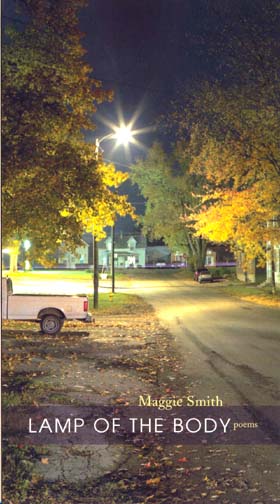Winner of the Benjamin Saltman Poetry Award
“Here in Maggie Smith’s first book we encounter a voice that is spare, confident, and precise. Her images click into place, and the movement of each poem is deft, muscular, taut. These are poems we trust, poems that ask hard questions while at the same time convincing us of the magic in the world. Smith’s voice is reserved, yet she carries her world forward in her teeth, so to speak. There’s wisdom and acceptance in many of the poems, coupled with a willingness to utter what she does not understand, a recognition ‘that worse happens to better than I.’ She embraces the mystery. There’s a kinship with the Ohio landscape, but also the recognition that ‘darkness ploughs its furrows here.’ These are poems that do not flinch in the face of grief while at the same time they do not give into formulas that either comfort or accuse. I admire the courage and the control, the gorgeous turns, the leaps she takes in the poems while keeping the center of each poem intact. These are poems that do not wobble; the voice is confident and secure, the authority claimed, and the darkness met head on–‘mealy, and bitter’ but as she writes in ‘The Poem Speaks to Danger’: ‘I am the mouth/that can hold more . . . the globe // of some new, ready fruit.’ This is a book that delights, intrigues, and instructs. A wonderful debut.”
— Carol Potter
